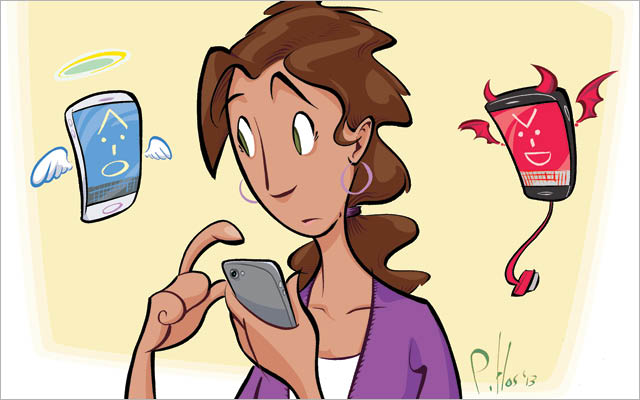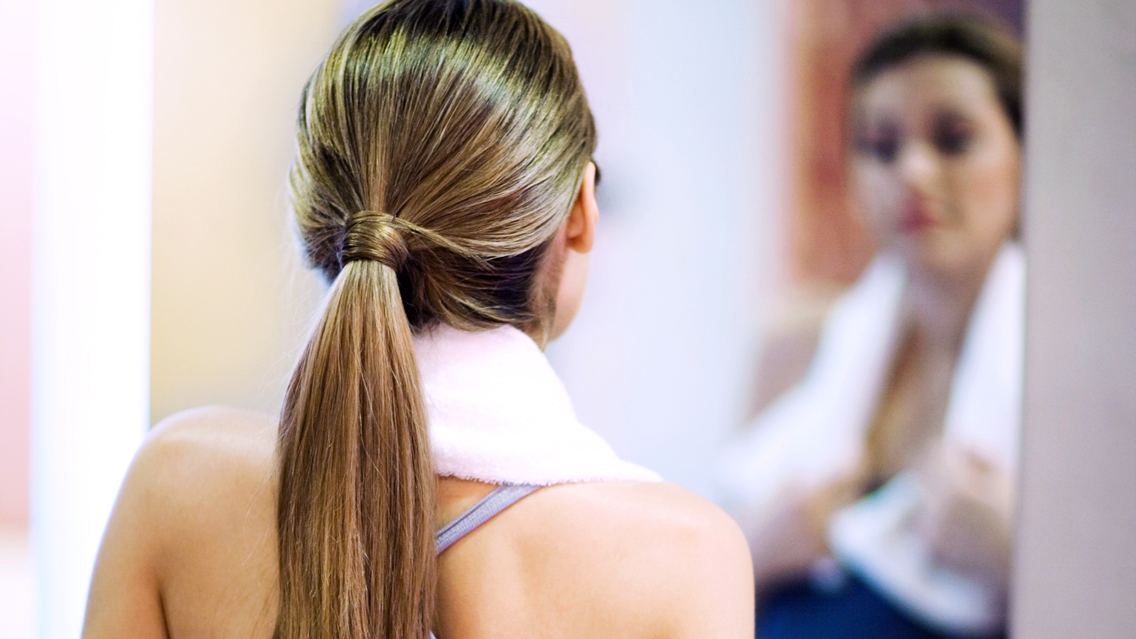In a culture that idolizes six-pack abs and thigh gaps, we’re all prone to experiencing body-image issues. It’s hard to avoid the media’s vision — plastered on billboards, filling the pages of magazines, and flashing on TV screens and in movies — of what and who is beautiful.
Listening to all those voices telling us the way we should look — along with the ones in our own heads — has warped our priorities. According to a 2009 Oxygen Media survey of more than 2,000 adults, nearly 25 percent of women ages 18 to 34 would rather win America’s Next Top Model than the Nobel Peace Prize. A 2011 survey of more than 26,000 moms conducted by Today.com and Parenting.com found that 45 percent would rather be 15 pounds thinner than add 15 points to their child’s IQ.
Like those moms in the study, you’ve probably looked in the mirror and felt unhappy with your hips and derrière. And, guys, are you always super happy with those biceps — or do you wish they were bigger? All our negative body talk gets internalized and can lead to self-destructive, even life-threatening behaviors.
It can also lead us to compare our bodies to — and maybe even comment on — the bodies of others because, let’s face it, social media offers plenty of opportunities to do so. Clearly our ideas about our self-image don’t live in a vacuum. They impact all the other real (and virtual) adults and kids in our lives, too.
The results of the first cross-national study investigating weight-based bullying, which were recently published in the journal Pediatric Obesity, are a good example of this. The findings show that adults perceived being “fat” — over race, sex, gender, or sexual orientation — as the most common reason children are bullied.
The researchers from Yale’s Rudd Center for Food Policy and Obesity found “at least 70 percent of participants across all countries perceived weight-based bullying in youth to be a common or very common problem and at least 69 percent of participants across countries perceived this as a serious or very serious problem.”
Nearly three-quarters of the 2,866 adults surveyed from the United States, Canada, Iceland, and Australia — countries with similar prevalence of childhood and adult obesity and cultural notions of beauty standards — called for schools and anti-bullying policies to address the issue.
Respondents also viewed parents, teachers, and healthcare providers as playing important roles in efforts to reduce weight-based bullying. The researchers also call “for more education for caregivers and teachers to increase their awareness of weight-based bullying and to teach them strategies and resources to support vulnerable youth.”
While educators and caregivers are on the frontlines, we all have a role to play in shifting cultural norms about what an ideal body is. It’s a sizeable challenge to get past body envy, to keep in mind that most media images have been heavily augmented with Photoshop, and to remember how much money eating well can cost — especially given limited resources and food options available in many communities — and the effort getting and staying in shape is.
Change is always overwhelming and scary, but here’s a quiz to help you assess how healthy your body image is along with a few tips to help you start being more body positive.
1. If you: Habitually make general disses, such as, “I hate my legs!” or “Ugh, I’m so out of shape.”
Try this: Catch yourself in the act and either reframe the comment with constructive intent (“I’m going to get out for a hike!”) or don’t say anything at all, and just take note of the voices in your mind.
2. If you: Make negative comparisons, such as, “Yeah, I’ve slimmed down a little, but I’m still no Naomi Campbell.”
Try this: Revel in what you’re pleased about instead. Say, “I’m glad I’ve been eating healthy lately, and my energy is good.” Leave comparisons out of the equation. You’ve got one body — appreciate it for all it is.
3. If you: Reject compliments (“Nice feet? Ugh, I hate my feet!” or “Really? I think these pants make me look fat.”).
Try this: Accept compliments with a smile and a thank you.
I know from personal experience that making these shifts are awkward and difficult at first, but remember that you’re not alone in this. Having healthy body talk and a positive self-image is a struggle for most of us.
TELL US: What do you think is the most common cause of childhood bullying?




This Post Has 0 Comments